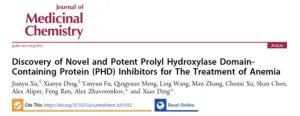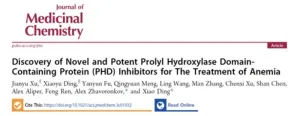(Press-News.org) A new research centre focused on harnessing the positive powers of fungi is being established at Cranfield University with a £7.2 million injection of funding from Research England.
Fungi are one of the most diverse kingdoms in all living organisms and have an estimated global monetary value of 54.57 trillion US dollars. Long used for food and medicine, only a small proportion of classified fungi species has been studied in detail and developed for industrial use – leaving an estimated three million species yet to be discovered and evaluated. To date, research of fungi has largely focused on mitigating negative effects like disease, toxins and food loss.
The new research centre at Cranfield, the Magan Centre for Applied Mycology, will examine the positive role fungi-derived technologies and applications could have in supporting the green economy and global net zero ambitions.
‘Untapped Kingdom’ with transformative potential
With over 35 years of research expertise in fungi, particularly in food storage and safety, Cranfield will extend its work into other areas where fungi could have a profound impact. This will involve interdisciplinary research into applications such as renewable energy, biofuels, construction materials, packaging, robotic parts and fuel cells.
“Fungi is an untapped kingdom with the potential to transform our world,” said Professor Angel Medina-Vaya, Director of Environment and Agrifood at Cranfield University and Principal Investigator of the project.
“It’s not exaggerating to say that fungi can have a truly pivotal role in helping us reach global net zero ambitions. Imagine creating self-healing electrical components, fuelling an aircraft with fungi-derived biofuel, or building a house with fungal insulation. All of these and more are possible – and this new and unique research centre will pioneer many of these new applications and technologies.”
Global collaborations will create centre of excellence
Cranfield will be collaborating with organisations around the world that hold large collections of fungi to advance the research, including the Royal Botanic Gardens Kew in the UK, the Westerdijk Fungal Biodiversity Institute in the Netherlands, the Forestry and Agricultural Biotechnology Institute in South Africa.
The new funding is boosted by a contribution from the University to create a £10 million centre of excellence. It will support five academic posts, five post doctorate roles and several technical staff, as well as upgrading Cranfield’s specialist lab facilities.
Professor Leon A. Terry, Pro-Vice-Chancellor for Research and Innovation at Cranfield University welcomed the new investment: “The interdisciplinary nature of this new research centre along with Cranfield’s world-renowned and long-standing expertise in mycology makes this a really exciting prospect. We look forward to working with partners and industry to develop some of the most novel and innovative technologies in this space.”
Dr Steven Hill, Director of Research at Research England, said: “We have invested in research units in universities right across England. This will diversify the regional spread of research disciplines to support the sustained enhancement of research capacity across England, and enhance the skills base, build and diversify talent and bring disciplines together to develop new skillsets and "future leaders” in areas of research excellence where there is untapped potential.
“Our investment will also help to reinforce the contribution of HEPs to their region through strategic local partnerships, focusing on sharing resources and infrastructure and generating local impact, backed by robust institutional leadership. We’re excited to see how these units develop over the next five years.”
The new centre is named after Professor Naresh Magan, who died in April 2023. Naresh was a globally-renowned expert in the field of applied mycology and established the Applied Mycology research group at Cranfield, working at the university for 37 years.
Cranfield is the only Higher Education Provider to have been part of two different and successful Expanding Excellence in England awards in this funding round from Research England. Cranfield academics are also set to collaborate on a new £13.5 million Future Biodetection Technologies Research Hub, led by the University of Hertfordshire, in collaboration with Cranfield, Leeds and Manchester universities.
END
New research center to explore how ‘untapped Kingdom’ of fungi can change our world
A new research center focused on harnessing the positive powers of fungi is being established at Cranfield University with a £7.2 million injection of funding from Research England
2024-01-19
ELSE PRESS RELEASES FROM THIS DATE:
University of Houston joins SMART Hub, a $5 million Department of Defense consortium
2024-01-19
To tackle the challenges of a shrinking wireless spectrum, the University of Houston has joined the Spectrum Management with Adaptive and Reconfigurable Technology (SMART) Hub – a Department of Defense Spectrum Innovation Center to conduct multifaceted spectrum research to meet national defense needs. The center, led by Baylor University, is a collection of researchers, engineers and economic and policy experts looking to enact a paradigm shift in the use and management of the wireless spectrum.
SMART Hub will develop next-generation technologies for unprecedented spectrum agility, to revolutionize ...
Occupational sitting time, leisure physical activity, and all-cause and cardiovascular disease mortality
2024-01-19
About The Study: In this study involving 481,000 individuals over a mean follow-up period of nearly 13 years, individuals who predominantly engaged in sitting at work exhibited a higher risk of mortality from all causes and cardiovascular disease compared with those who predominantly did not sit. Individuals who predominantly sit at work would need to engage in an additional 15 to 30 minutes of physical activity per day to mitigate this increased risk and reach the same level of risk as individuals who predominantly do not sit at work.
Authors: Chi-Pang Wen, M.D., Ph.D., of the National Health Research ...
Timing of maternal COVID-19 vaccine and antibody concentrations in infants born preterm
2024-01-19
About The Study: In this prospective cohort study of 220 pregnant individuals with preterm and full-term deliveries, receipt of three or more compared with two doses of COVID-19 vaccine before delivery resulted in 10-fold higher cord anti-Spike antibody levels. Maternal antibody concentration appeared more important than delivery gestational age in determining cord anti-Spike antibody levels. The number of doses and timing considerations for COVID-19 vaccine in pregnancy should include individuals at risk for preterm delivery.
Authors: Alisa Kachikis, M.D., M.S., of the University ...
When are opioid prescription limits effective in reducing prescription length?
2024-01-19
Study analyzed a West Virginia policy that tailored duration limits to a patient’s clinical setting
Researchers found a 27-57% reduction in prescription length with the tailored policy
Additional research is needed on potential consequences of limits, such as use of illicit opioids for pain relief
CHICAGO --- Many states have passed new laws that place restrictions on the duration of first-time opioid prescriptions to help address the opioid epidemic.
While most laws are one-size-fits-all, policies more tailored to the patient, such as their age or clinical setting (outpatient clinic, emergency room, etc.), were more effective ...
Bacterial meningitis damages one in three children for life
2024-01-19
One in three children who suffer from bacterial meningitis live with permanent neurological disabilities due to the infection. This is according to a new epidemiological study led by Karolinska Institutet and published in leading medical journal JAMA Network Open.
For the first time, researchers have identified the long-term health burden of bacterial meningitis. The bacterial infection can currently be cured with antibiotics, but it often leads to permanent neurological impairment. And since children are often affected, ...
McMaster researchers create instruction manual to detect rare cells that could unlock secrets to allergies
2024-01-19
Researchers with McMaster University have created the instruction manual that will help scientists across the globe find hard to detect B cells.
Led by PhD student Alyssa Phelps and Department of Medicine Assistant Professor Josh Koenig, researchers wanted to chart a path to finding these cells as part of their work in understanding food allergies. Their work was published in the journal Nature Protocols on Jan. 19, 2024.
B cells are a type of immune cell that makes antibodies. These cells help fight conditions like cancer and infections but can also cause autoimmune diseases and allergies.
"One of the big problems with trying to study these B ...
Rice’s Amanda Marciel wins NSF CAREER Award
2024-01-19
HOUSTON – (Jan. 19, 2024) – Amanda Marciel describes her current research, supported by a CAREER Award from the National Science Foundation, as an effort to understand and make “really soft, stretchable stuff.”
Expressed more formally, she works at the molecular level to design branch elastomers that return to their original shape after being stretched.
“What I’m doing is creating synthetic networks that have a gel-like softness and are highly elastic for such applications as stretchable ...
JMC|Insilico Medicine nominates novel AI-driven PHD inhibitor targeting anemia
2024-01-19
Clinical stage generative artificial intelligence (AI)-driven biotechnology company InSilico Medicine (“InSilico”), today announced that the Journal of Medicinal Chemistry, an ACS Publications journal focusing on critical studies about molecular structure and biological activity, has published the company’s discovery of a novel PHD inhibitor for the treatment of anemia. The academic breakthrough is powered by Chemistry42, its proprietary generative chemistry platform consisting of more than 40 selected generative models.
As suggested in previous studies, the inhibition ...
JMC | Insilico Medicine presents the discovery of the potent and selective MYT1 inhibitors for the treatment of cancer through generative AI
2024-01-19
Insilico Medicine(“Insilico”), a clinical stage generative artificial intelligence (AI)-driven drug discovery company, recently published an early research that it has identified MYT1 as a promising new therapeutic target for breast and gynecological cancer, and discovered a series of novel, potent, and highly selective inhibitors specifically targeting MYT1. These findings were supported by Insilico’s AI-driven generative biology and chemistry engine and published in the Journal of Medicinal Chemistry in Dec 2023.
Across ...
Professors Yoon-Kyoung Cho elected as Member of National Academy of Engineering of Korea!
2024-01-19
Professor Yoon-Kyoung Cho from the Department of Biomedical Engineering at UNIST has been elected as a member of the National Academy of Engineering of Korea (NAEK), the most prestigious organization in the field of engineering in Korea.
On January 4, the National Academy of Engineering of Korea (NAEK) announced the election of 50 new members, comprising 25 academic and 25 industrial figures, in recognition of their distinguished and ongoing achievements in original research. Membership in NAEK is considered one of the highest professional distinctions for engineers. Professor Cho’s name appeared ...
LAST 30 PRESS RELEASES:
Kidney cancer study finds belzutifan plus pembrolizumab post-surgery helps patients at high risk for relapse stay cancer-free longer
Alkali cation effects in electrochemical carbon dioxide reduction
Test platforms for charging wireless cars now fit on a bench
$3 million NIH grant funds national study of Medicare Advantage’s benefit expansion into social supports
Amplified Sciences achieves CAP accreditation for cutting-edge diagnostic lab
Fred Hutch announces 12 recipients of the annual Harold M. Weintraub Graduate Student Award
Native forest litter helps rebuild soil life in post-mining landscapes
Mountain soils in arid regions may emit more greenhouse gas as climate shifts, new study finds
Pairing biochar with other soil amendments could unlock stronger gains in soil health
Why do we get a skip in our step when we’re happy? Thank dopamine
UC Irvine scientists uncover cellular mechanism behind muscle repair
Platform to map living brain noninvasively takes next big step
Stress-testing the Cascadia Subduction Zone reveals variability that could impact how earthquakes spread
We may be underestimating the true carbon cost of northern wildfires
Blood test predicts which bladder cancer patients may safely skip surgery
Kennesaw State's Vijay Anand honored as National Academy of Inventors Senior Member
Recovery from whaling reveals the role of age in Humpback reproduction
Can the canny tick help prevent disease like MS and cancer?
Newcomer children show lower rates of emergency department use for non‑urgent conditions, study finds
Cognitive and neuropsychiatric function in former American football players
From trash to climate tech: rubber gloves find new life as carbon capturers materials
A step towards needed treatments for hantaviruses in new molecular map
Boys are more motivated, while girls are more compassionate?
Study identifies opposing roles for IL6 and IL6R in long-term mortality
AI accurately spots medical disorder from privacy-conscious hand images
Transient Pauli blocking for broadband ultrafast optical switching
Political polarization can spur CO2 emissions, stymie climate action
Researchers develop new strategy for improving inverted perovskite solar cells
Yes! The role of YAP and CTGF as potential therapeutic targets for preventing severe liver disease
Pancreatic cancer may begin hiding from the immune system earlier than we thought
[Press-News.org] New research center to explore how ‘untapped Kingdom’ of fungi can change our worldA new research center focused on harnessing the positive powers of fungi is being established at Cranfield University with a £7.2 million injection of funding from Research England





